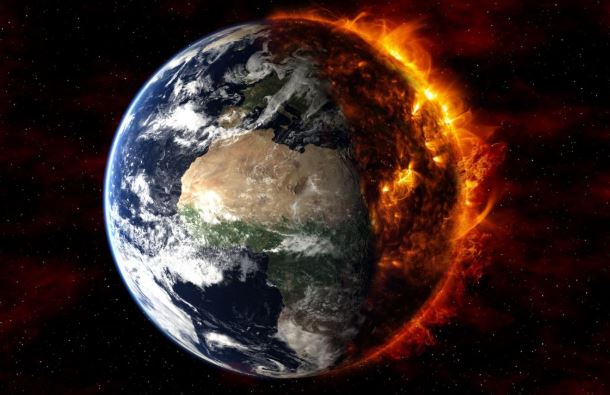The so-called climate catastrophe projected to peak in 12 years is simply “not taking place,” according to Fritz Vahrenholt, one of the founders of Germany’s modern environmental movement. On the contrary, humans have about three generations’ time to push for cleaner and more sustainable energy sources.
In an interview with leading German journalist Roland Tichy, Vahrenholt debunked pseudoscientific claims on climate change that alarmists, legislators and mainstream media have been so loud about.
For millennia, warmth and moisture were considered beneficial for mankind. It was the cold that humans had to look out for. Moreover, much of the atmospheric conditions now taking place result from natural phenomena that humans have no power whatsoever to influence.
For instance, the sun has never before demonstrated such great activity over the past thousand years as it does today. The Earth was also three degrees Celsius warmer when civilization began. There was no tipping point then, and there is still no clear sign that there will be one in the future, added Vahrenholt.
In light of this irrefutable evidence, it then becomes clear that climate change propagandists and legislators endorsing climate change policies have been using panic and fear to send millions into a frenzied rush for purportedly cleaner energy in the form of electric cars and solar panels, among many others.
“Green fantasy” spells economic doom
Vahrenholt agrees that mankind needs to start using more sustainable fuel sources in the future to slow the inevitable depletion of fossil fuels. But solar and wind, which climate change propagandists are quick to champion, are not reliable replacements for fossil fuels.
People who think otherwise are “fantasizing,” said Vahrenholt.
But this act of fantasizing has real-world impacts. For instance, German legislators have been generating demand for electric cars through expanded consumer subsidies and incentives like tax exemptions.
In turn, this demand generation has sent thousands in a rush to procure electric cars. But Vahrenholt believes that this tactic is doomed to end in horrible economic consequences from European industrialization.
Like Vahrenholt, many German scientists are also convinced that electric cars are neither a feasible nor a cleaner technology than proponents make it out to be.
For starters, electric cars still get their energy from burning carbon despite not needing gas. This is because charging stations draw from coal-fired power plants, dozens of which power Germany’s electric grid. Therefore, electric cars are no better than gas-powered ones with regard to carbon emissions.
Paris Agreement “already dead”
In light of Germany’s aggressive push for cleaner energy, Vahrenholt also slammed Europe’s equally aggressive and ambitious emissions targets.
The Paris Agreement, a ratified global collaboration to fight climate change, is already dead, he said. “It’s all concentrated on a handful of European countries.”
For one, US President Donald Trump has already announced his intention to pull the US from the agreement late last year. Russia President Vladimir Putin, on the other hand, dismissed the agreement as pure nonsense.
Putin is no stranger to critics given his repeated dismissal of climate change propaganda, criticizing the likes of climate campaigner Greta Thunberg.
During his annual news conference last December, Putin also cast doubt on the alleged man-made origins of climate change. “[There] have been periods of warming and cooling and it could depend on processes in the universe,” he said.
Meanwhile, China, another member of the agreement, has pledged “carbon neutrality” by 2060. This is a much less stringent target than the “climate neutrality” pledge of the European Union (EU). (Related: The Paris Climate Accord is GENOCIDE against plants, forests and all life on our planet.)
China’s target also appears to cover only carbon dioxide emissions, not those of other gases like nitrous oxide from their nitrogen fertilizers. Chinese farmers use about 305 kilograms of these harmful nitrogen fertilizers per hectare every year. This is more than four times the global average.
Leave a comment









